Autism Support Lives Here
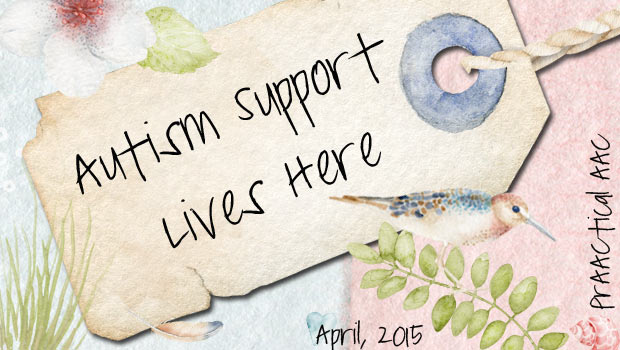
This is for all of you who work tirelessly to support families affected by autism.

This is for all of you who work tirelessly to support families affected by autism.
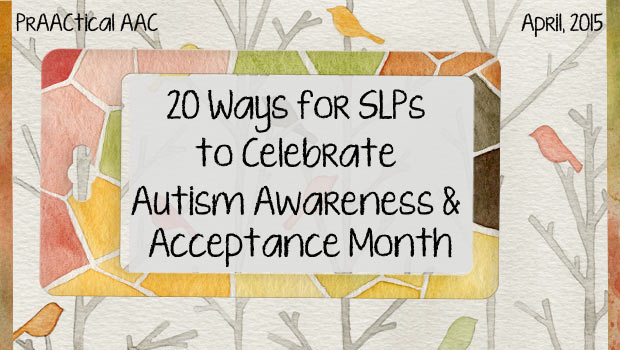
As SLPs, we know a good deal about autism spectrum disorders. Nevertheless, there’s always some new area to explore. Here are some ideas. Learn about and from self-advocates with ASD. Get inspired to learn more about video modeling and self modeling. Enroll in a MOOC (Massive Open Online Course) on Autism, like this one by Swinburne University of Technology. Learn more about what makes a narrative a social story as opposed to something else by reviewing the guidelines for sentence types. Take a ‘real look’ at a speech-language therapy session where the focus is coaching a family member to build play and interaction skills. Learn more about the neurodiversity and the neurodiversity movement. Share some of the empirical supports for AAC use. Learn more about DSM 5. Take a ‘real look’ at a family whose child has Down Syndrome and autism. Renew your commitment to theoretically sound and empirically supported... [Read More...]
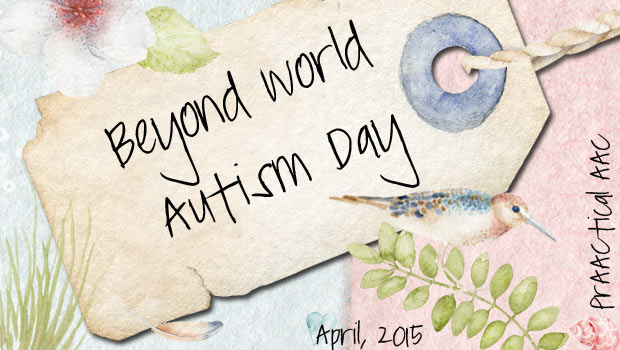
Today is a great day to appreciate the experiences we’ve each had with individuals affected by autism and their families. They come to us to learn, but, in reality, they teach us so much. What are some of the ways they’ve taught or inspired you?
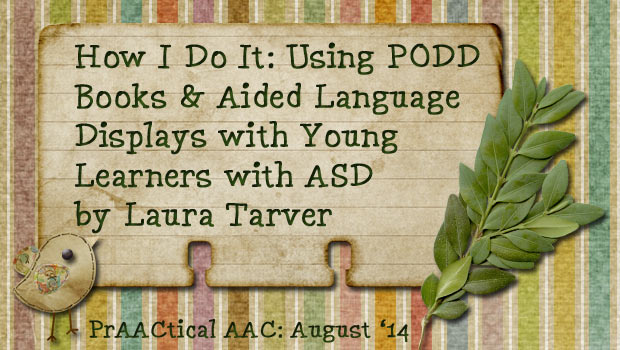
Today, we turn to the UK in a guest post by Laura Tarver. a London-based Speech and Language Therapist working with children with ASD and other complex needs. She previously worked in a primary school for children with ASD, where PODD and Aided Language Displays were introduced as part of a school wide approach in order to enhance the communication-friendly environment for all pupils. In this post, she shares how they used PODD books and aided language input to build the students’ communication skills. :::::::::::::::::::::::::::::::::::::::::::::::::::::::::::::::::: PODD (or Pragmatic Organisation Dynamic Display) communication books were developed in Australia by Gayle Porter, originally for children with cerebral palsy. As their use becomes more widespread throughout the world, practitioners are considering the benefits of using them with other clinical populations. Their structured organisation and emphasis on visual communication means that they are also a valuable tool for developing the communication of those with... [Read More...]
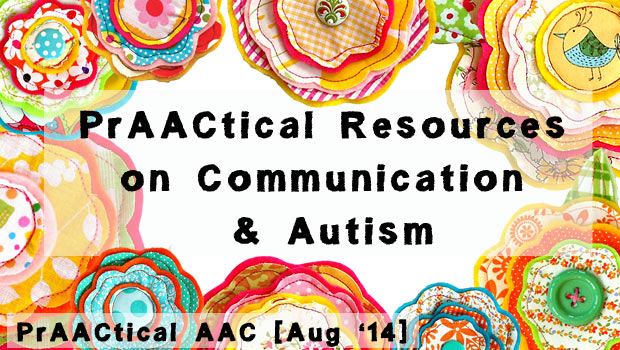
It’s vacation time! While we catch up with friends and family, here are some resources to peruse.
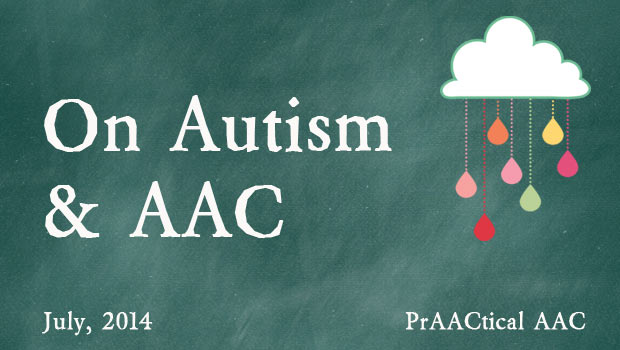
Today we are revisiting some of Robin’s most popular posts. 30 Ways to Celebrate Autism Awareness Month AAC Must-Have’s for the Classroom and Therapy Room The First 12: Getting Started with Core Words Literacy For Everyone with Adapted Books Beyond Requesting: Using Scripts to Teach Conversation AAC Goals That Matter Creating Communication Boards: There are Lot of Apps for That! Join Together: Core and Fringe Vocabulary Beyond Requesting: Let’s Chat with Peers Begin AAC Now: 10 Things to Do
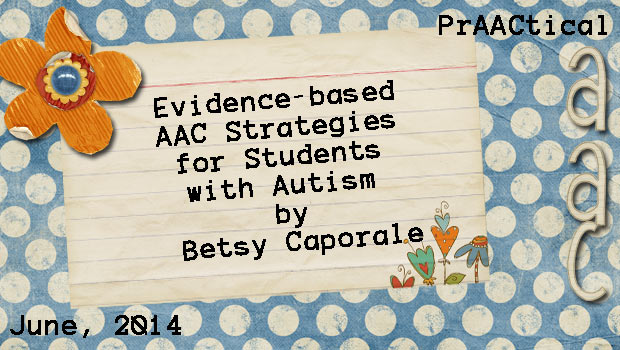
Autism Awareness and Acceptance Month may be over, but our interests in providing empirically-supported AAC services are long-lasting. In this post, we are pleased to be able to share the work of Betsy Caporale, an SLP with more than 20 years experience working in AAC, AT, and ASD. She has worked in a variety of settings including public schools, private hospitals and clinics. Currently, Betsy works at for the California Department of Education, Diagnostic Center in Northern California. Betsy has graciously agreed to share a presentation given a few months back at the California Speech Language and Hearing Association conference. You can download and view it here or in the AAC e-Toolbox.
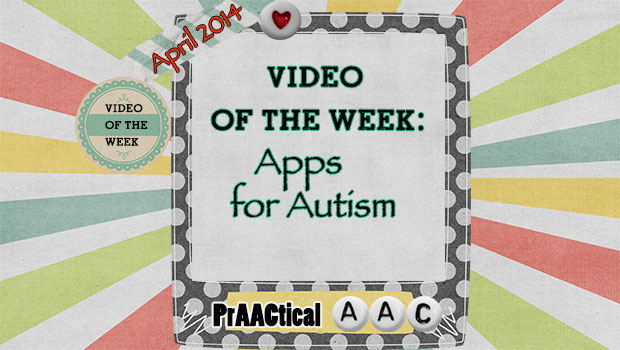
The Autism Research Institute presents ‘Apps for Autism’ by T. Sutton, SLP. Get ideas for where to look for apps, how to select apps for speech-language, academic, and social goals, and specific app ideas with clinical rationales for choosing and using apps. Get ready for some goal focused app fun! (direct link to video: http://youtu.be/y5QbrsTNyXY)
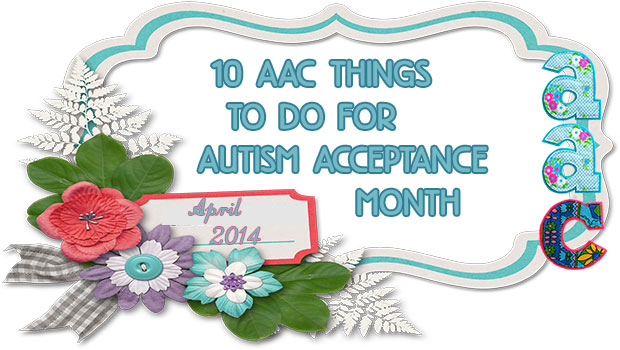
We love Autism Awareness and Acceptance Month. There is so much excitement and great community activities. The month becomes very busy so we love choosing events and projects that facilitate autism acceptance and AAC learning. We pass out materials, have contests, do extra trainings and have many public awareness events. We make sure to support our events and activities with AAC materials. Here are some of the things we do and recommend to support AAC and Autism learning. Please share any activities or projects that you know about. Bake, share, & eat some desserts. Use and include visual recipes when cooking. Need inspiration?.. Go to Your Special Chef for shopping lists and recipes. Educate peers visually by using the Autism Acceptance Book: Being a Friend to Someone with Autism by Ellen Sabin Develop & Use a personal participation story (modified social story) to let alert someone that this will... [Read More...]
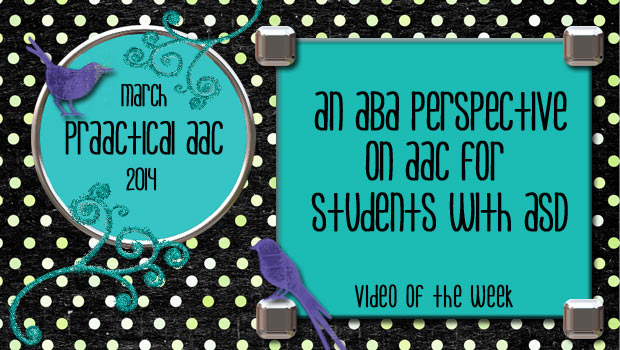
This week’s video features Dr. Melissa Olive, who provides an introduction to AAC for people with ASD. Thanks to The Johnston Center for Child Health and Development for making this presentation available. Direct Link to Video: http://www.youtube.com/watch?v=Yi7XHGOA9gU